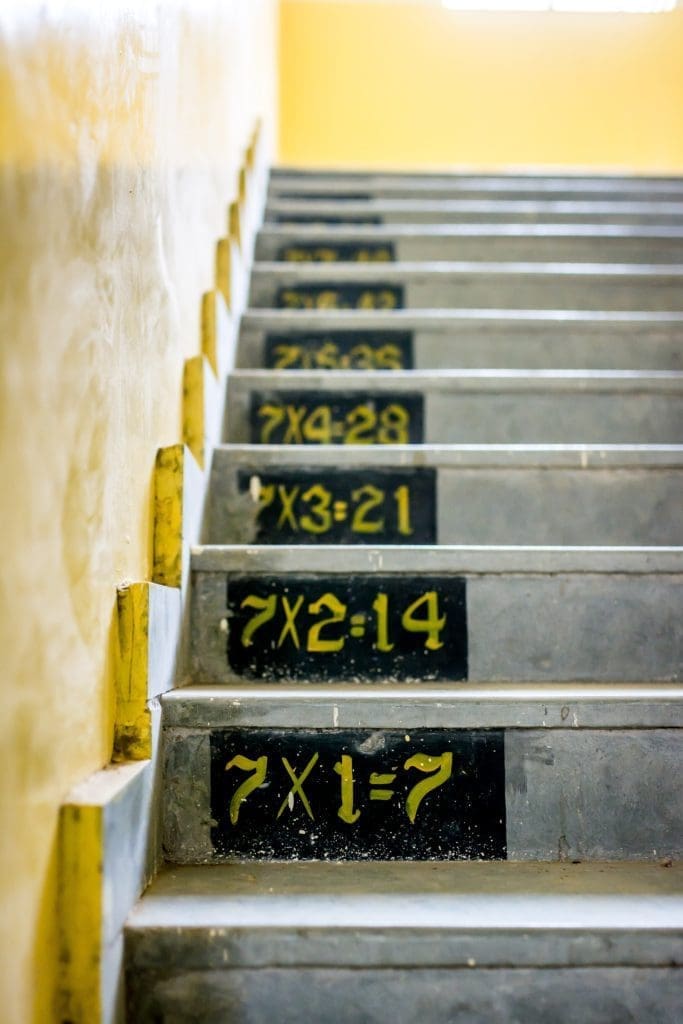
The first question teachers, tutors and homeschool parents should ask when planning an instructional program is, “what is most important for my student/child to learn?” While there are definitely key foundational concepts and skills to begin your program, the most important thing to address is the child’s MINDSET about math. The key to a child learning anything is that he believes that he or she can!
When I taught 4th and 5th grade it amazed me how many kids came in with the idea that they were “bad at math.” In the last few years as testing has taken over the schools I hear it younger and younger. “My grandma was bad at math, my mom is bad at math, and so am I. That’s just the way it is.” one girl told me.
Young children don’t have this attitude. They have curiosity, a willingness to ask questions, to try new things, and to make mistakes. Somewhere along the line many kids stop doing this with math; they think of it as just a school subject (and an overly tested one) that people are either good at or bad at. They forget that math is all around them, something they use every single day in the things they do for fun.
Now when I meet a new math student, I ask them how they would rate their feelings of math on a scale of o to 100. If they rate it low I ask them what their favorite subject is. Would you believe many of them tell me science? “Can you do science without math?” I ask them. Usually they say yes. I then have them talk me through their favorite experiment and as they talk I will say things like “Measuring, isn’t that math? Graphing, isn’t that math?” They will laugh and say “I guess it is.” We have had similar conversations about art, music, dance, cooking, even gymnastics. The point is the same, that the child sees they already use math every day. They are just not thinking of it as math. Once they realize this they get an instant confidence boost and start to open their mind to changing their attitude about math. I tell them that I have not yet met a child who still disliked math after they worked with me for awhile. I’ve had many who claim they will be the first, but it hasn’t happened yet!
Once I help a child see that they already use math, that it’s not just a school subject, I talk to them in a straightforward way about how we are going to use this “real math” they already do to help them with “school math.” We will play games, we will do art projects and science experiments, we will create and build, and they will learn their math!
How do we do this, and how do we connect it to the math we do at school?
